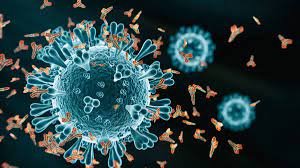
A new variant of concern, identified as JN.1, has emerged in Kerala, sparking concerns among global health authorities due to its potential for increased infectivity. The JN.1 variant, detected in a 79-year-old woman in Thiruvananthapuram district, has raised alarms despite the patient’s recovery from mild Influenza Like Illness (ILI).
Scientists worldwide are closely monitoring the JN.1 variant, believed to be an Omicron subvariant known as BA.2.86 or Pirola. This particular strain, initially discovered in the US in September, has now been identified in seven cases in China as of December 15, as reported by Reuters. Notably, the CDC highlighted that although labeled differently, only a single spike protein change distinguishes JN.1 from BA.2.86, potentially influencing the virus’s infectivity.
The spike protein, pivotal in the virus’s ability to infect humans, remains a target for existing vaccinations. The CDC reassured that vaccines targeting the spike protein should offer protection against JN.1 and its close subvariant.
Dr. Ujjwal Prakash, Senior Consultant in Chest Medicine at Delhi’s Ganga Ram Hospital, stressed the importance of vigilance while urging against panic. “Being vigilant is crucial. There’s no need for panic or extreme measures,” he emphasized. Symptoms associated with the JN.1 variant include fever, runny nose, sore throat, headache, and occasionally, mild gastrointestinal issues. However, Dr. Prakash noted that most cases present mild upper respiratory symptoms that typically improve within days.
Highlighting the necessity for testing and distinguishing between COVID and other viral infections, Dr. Prakash underlined the similarities in symptoms between various viral illnesses. He cautioned against prematurely predicting a new COVID wave, suggesting a wait-and-watch approach while advising adherence to precautionary measures.
Encouraging mask-wearing and prompt testing upon detecting viral symptoms, Dr. Prakash emphasized isolation for persistent symptoms, advocating for responsible actions to mitigate transmission risks.
As health authorities and scientists intensify surveillance and research on the JN.1 variant, cautious measures, timely testing, and adherence to safety protocols remain critical in mitigating the potential impact of this emerging strain.
Sources By Agencies

